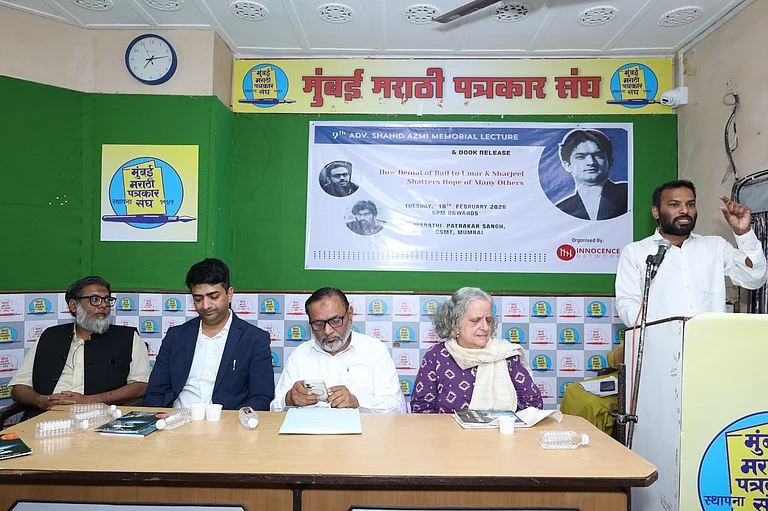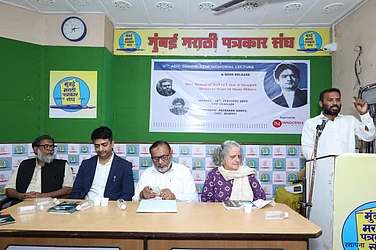What began on Sunday in Qatar and Kuwait has now spread across the Gulf region as well as to Egypt, Indonesia, and nearer home to the Maldives and Afghanistan. Pakistan also naturally joined in and ensured a strong statement from the Organisation of Islamic Cooperation (OIC).
While New Delhi has been assuaging the Gulf rulers, its response to OIC has been scathing, mainly because the South Block feels Pakistan has a major role in influencing the OIC grouping.
However, this is hardly about Pakistan and the OIC. It is much more serious and it affects India’s strategic, economic, and political relations with its extended neighbourhood. Yes, India went into damage-control mode immediately. The fire will be doused for now, but there is no guarantee that there will not be a next time.
Islamophobia is rampant in the country and unless the government does a course correction on anti-Muslim propaganda being promoted, no doubt the country will have to pay a heavy price for the polarisation that is being used for internal politics.
The irony is that the Gulf countries are India’s friends and do not wish to jeopardise relations. However, when religious sentiments come into play, and when the Holy Prophet is attacked, there is no way that the rulers will not react. As everyone is aware, religion is a sensitive issue for most people, be it Hindus, Muslims, Christians or Jews. Even authoritarian leaders cannot bypass strong feelings expressed by Muslims across the Gulf countries on social media.
The Gulf nations had neither reacted to the scrapping of Kashmir’s special status in 2019, nor commented on what was happening in the name of ‘love jihad’, cow slaughter and the harassment of minorities. Things may be different now.
In the interconnected world in which we live, nothing that happens inside the country can be hidden from the rest of the world. With the people in the Gulf now enraged by what’s commonly referred to as ‘blasphemy’ against the Holy Prophet, they will be attuned to anti-Muslim sentiments in India. Reactions against hate speech against the community, which has become commonplace in India will be viewed with anger by Muslims across the world.
While normally the authoritarian rulers of the Gulf region are not bothered about common Muslims at home or abroad, when people in the streets see their faith being targeted, the rulers take note. The Gulf kingdoms did not react till the Prophet’s name was dragged in by former Bharatiya Janata Party spokesperson Nupur Sharma. The reaction from the Gulf and other Muslim countries should have been anticipated by any person aware of the world outside.
The Gulf Cooperation Council (GCC) is of great economic importance for India and trade has been expanding. A third of the country’s oil imports are from the Gulf – Saudi Arabia, Bahrain, United Arab Emirates (UAE), Kuwait, Oman. Qatar is the lead supplier of liquified natural gas. Of the $80 billion foreign remittances that India has got annually for the last three years, 65 per cent comes from GCC countries.
India’s exports to the GCC countries have risen by 58.26 per cent to $44 billion in 2021-22 from $ 27.8 billion in 2020-2021. Besides this, Saudi Arabia and the UAE are keen to invest in India as these two nations look to diversify their dependence on oil.
The fallout of Arab anger against India can also result in less recruitment of workforce from India, according to Talmiz Ahmad, a former Indian Ambassador to Saudi Arabia.
He said, “For Muslims, derogatory remarks against the Prophet are not negotiable. So while their governments will repair ties with India, companies may hesitate to employ workers from this country. We have to wait and watch.”
Prime Minister Narendra Modi’s BJP government will have to do some major introspection and course correction to ensure that incidents like this do not happen.
Former ambassador Ahmad said, “I think it is time to go back to the fundamental principles of our nation. We are a pluralistic and accommodative nation.”
‘Sab ka saath, sab ka vikas, sab ka vishwas’ is what the BJP should get back to and implement it sincerely, the former envoy added.
The alarm bells are ringing across the Muslim world and India will be under watch.



























